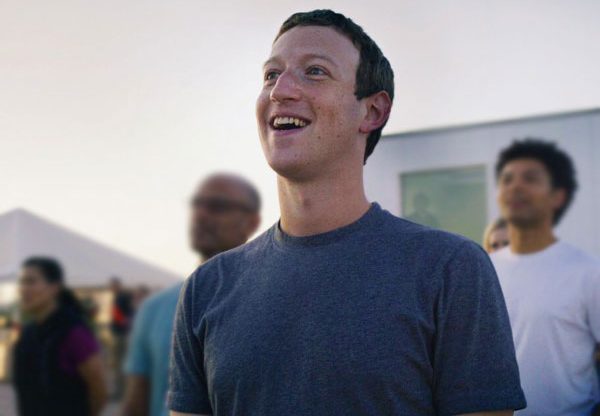Ha'aretz.
Social media has no connection to democracy; it’s all business. And a very lucrative one, judging by Mark Zuckerberg's wealth.
Nitzan Horowitz
WASHINGTON – Mark Zuckerberg smiled at me. We aren’t friends, even on Facebook, but apparently even he uses ads to promote his posts and I was targeted, like billions of other internet users. When I entered my page, up popped an ad with his smiling face, which led to his post. There, he heatedly denied that Facebook has any political bias or censorship.
News reports on this issue have raised a storm. The allegation is that Facebook’s editors kept news of a certain political slant off their list of “Trending Topics.” According to journalists who worked on the project, they were also required to publish certain stories on orders from above.
Zuckerberg vehemently denies this. “Facebook stands for giving everyone a voice,” he wrote in his post. “We believe the world is better when people from different backgrounds and with different ideas all have the power to share their thoughts and experiences.”
Is it true that everyone has the power to make his voice heard? Is Facebook really making the world better? It’s highly doubtful.
First, there’s Zuckerberg himself. Forbes magazine currently estimates his personal wealth at $51.7 billion, placing him sixth on the list of the world’s richest people. Is there anything wrong with being rich? Of course not. But profit, competition and vital societal initiatives bear no relationship to such a monstrous blitz of capital accumulation. There’s no competition here; this isn’t a “free market,” and the world surely isn’t better. A system that enables one man, no matter how talented, to accumulate this kind of wealth at the expense of the many is a rotten system.
It’s important to understand that these aren’t the normal concepts of wealth, and it’s really not the case that ’twas ever thus. This is something new. Zuckerberg didn’t invent it, but he certainly perfected it.
For what are we really talking about? About a predatory conglomerate that maximizes its accumulation of capital via the fiction of the stock market, thanks to a sophisticated combination of technology and media coupled with the capitulation of institutions that are supposed to protect the public interest. The bottom line is a dramatic increase in inequality.
Anyone who wants to understand the Donald Trump/Bernie Sanders phenomenon, the disgust with “the system” felt by millions of people, must understand this: The 62 richest people in the world, half of them American, currently own as much wealth as the poorer half of the world’s population – some 3.5 billion people. This tiny handful of neo-feudalists is reaping profits on a scale that’s hard to imagine, while everyone else’s income is diminishing.
The reason why this is happening right now is the invasive characteristics of the internet and technology giants, which have multidisciplinary levers of control that suck up wealth at a frenzied pace. It’s hard to think of any other organization in history that’s held this much information about people. That’s why the list of the world’s 10 richest billionaires features Bill Gates, Amazon’s Jeff Bezos, Zuckerberg and Oracle’s Larry Ellison. Further down the list are Google’s Larry Page and Sergey Brin, along with other guys in T-shirts from companies with cool images.
And what about the content? The theater of ideas on the web? Facebook and Google are sophisticated tools for transferring money from the many to the few. All their activity is aimed at accumulating capital: their mysterious algorithms for sorting content; the enormous amount of personal information they accumulate about their users; the accompanying invasive advertising; and, yes, also the way they steer public opinion so that people will buy more and more. Social media has no connection at all to democracy; it’s business.
Still, don’t the innovative tools they create have some uses nevertheless? Of course. But in order for us to benefit from them and achieve the social progress that they pretend to nurture, limits must be set for them. We must demand transparency, payment of taxes and obedience to the rules that all public agencies are required to follow.
The claim that they are “private enterprise” is ludicrous. Google and Facebook are more powerful than most of the world’s nations. The yawning abyss between Google’s motto, “Don’t be evil,” and reality has never been deeper.

